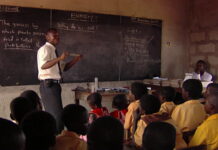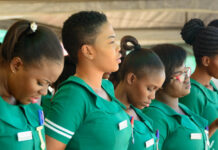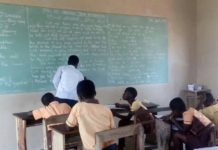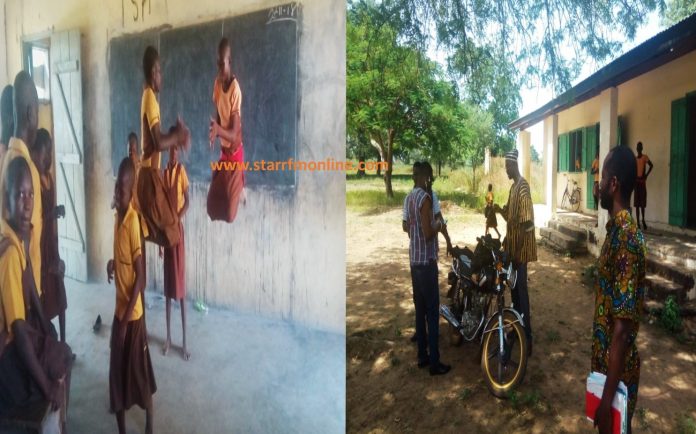
An indefinite strike action declared by the Coalition of Concerned Teachers Ghana (CCTGH) over some salary arrears government owes them has left thousands of schoolchildren in the Upper East region stranded.
Premises of the affected schools have turned into ‘amusement parks’ with schoolgirls playing ampe (a game involving simultaneous jumping, clapping and thrusting of feet forward by players) in the classrooms during instructional hours whilst their male counterparts are organising football gala as their striking teachers, even the Physical Education (PE) instructors, show no concern.
Over 2,000 members of the coalition in the region say they are not ready to return to the classroom until the arrears owed them for the past two years are paid. They are also angry over some purported deductions their employer, the Ghana Education Service (GES), is making from their salaries for an insurance cover without their approval.
“We have declared a strike starting from 1st November, 2018, till when our grievances are met. The grievances are basically the arrears accrued from 2012 till now. It is also about the SIC-GES policy which hit teachers on their blindside,” said the CCTGH’s Upper East Regional Chairman, Richard Sunday Yinbil.
He said: “Even though the leadership of the various unions were aware of it and were in support of the insurance policy, the manner in which it was handled and implemented, we were against it and we are still against it. Based on that, we asked government to refund the Gh¢10 which was deducted from every teacher’s salary to the teacher. Up to now, from July to November, we have not heard anything.”
Mr. Yinbil said all letters written by the coalition to the National Labour Commission (NLC) in the past, expressing their concerns, yielded no results.
“Up to now, they have not paid us. What are they doing themselves as Labour Commission? That is why you have seen that the schools are empty without our members. All members of CCTGH in this region have laid down their tools. There are no activities going on,” the chairman told journalists.
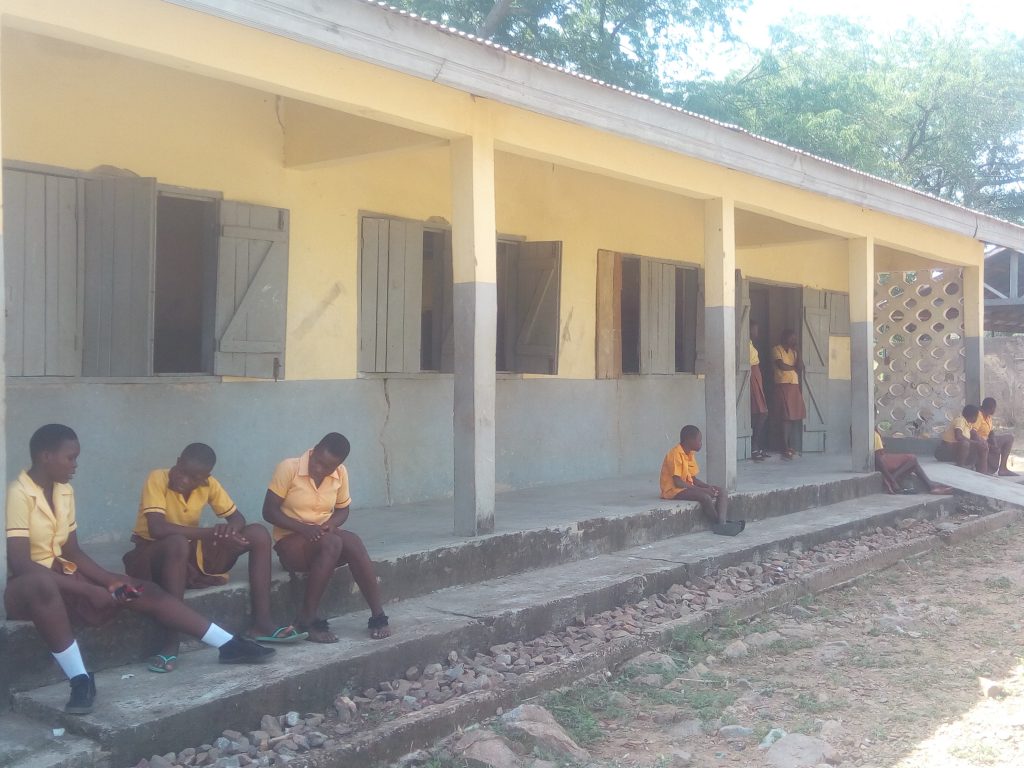
CCTGH Not Afraid of NLC’s Threats
The current strike action is being undertaken by members of the coalition only. This, however, does not mean those who are not members of the coalition and, for that matter, are still teaching are unaffected and are unconcerned regarding the arrears nonpayment and the alleged insurance deductions.
There are reports that some teachers who are not members of the CCTGH have, in solid solidarity with their striking counterparts, also suspended teaching— a development which may render even more classrooms empty and more schoolchildren dangerously stranded.
The NLC is said to have issued threats, describing the CCTGH’s strike action as illegal for alleged failure to follow due process. But, looking more upset about their denied arrears and the unapproved deductions than perturbed about the threats, the CCTGH says the NLC can go ahead with any counteraction it deems fit.
“We followed due process before we declared the strike action. We wrote letters. Those letters are there. There is nothing illegal about our action. They are only issuing threats they cannot go by because we are not sure the National Labour Commission can go and block our salaries because we are on strike.
“This is a legal strike. We have followed due process. We have followed them day in, day out. All the letters are available. Our lawyers, too, are there. If they think our strike is illegal, what they usually do is to sue us in court. We would go to court and talk about it. If that’s what they think, they can go ahead,” said the CCTGH’s Upper East Regional Secretary, Sampson Akolgo.
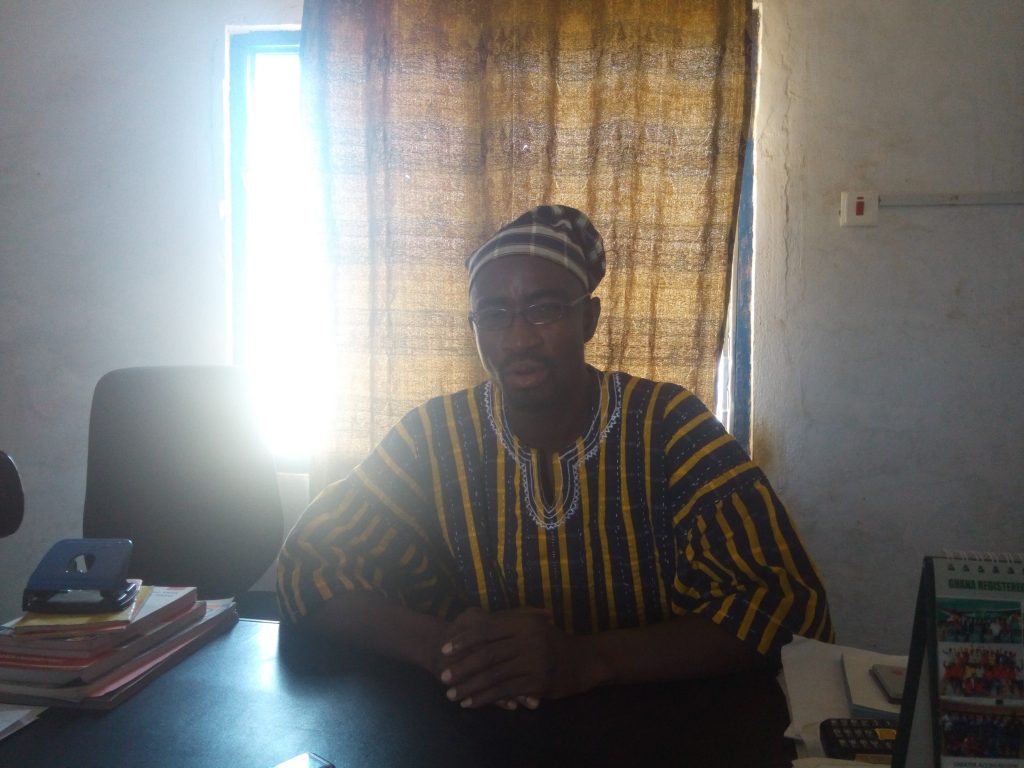
Baffled Pupils ask Government why the Nonpayment, Deductions
Newsmen were met with questions from some bewildered-looking pupils at the Sherigu Junior High School, one of the affected schools in the regional capital, Bolgatanga.
A frustrated-looking Assistant Headmaster of the school, Mathias Nsoh, was about to leave the school premises for home, with his books tucked under his armpit, when journalists touring affected schools arrived.
“The government is owing us huge sums of money,” replied Mr. Nsoh when asked why he was leaving the school during instructional time.
“You can see. Take a look around. The children are just hanging around. Teachers are not there to teach them. Myself, I just came because our head is not around. So, I came to put certain things in order before I go back. You can see that I’m holding my books. I’m going back to the house like that.
“We are about five [CCTGH] members in this school. All of them are not here. I’m the only one who came just for administrative work. The strike is a serious one and it will continue until the government sees to our needs,” the Assistant Headmaster stated.
Felicia Anafo, a JHS Two pupil at the school, told the press: “I want to tell the government to pay the teachers. They have not done anything bad. Why should they deduct from their salaries. The government should pay the teachers back the money so they can come and teach us.”
“If teachers go on strike,” said another pupil in the same class, Isaac Anafo, “we won’t get any knowledge, there would be low productivity and it would make the country poorer in the future. So, government has to pay the money.”
Source: Ghana/Starrfmonline.com/103.5FM/Edward Adeti


